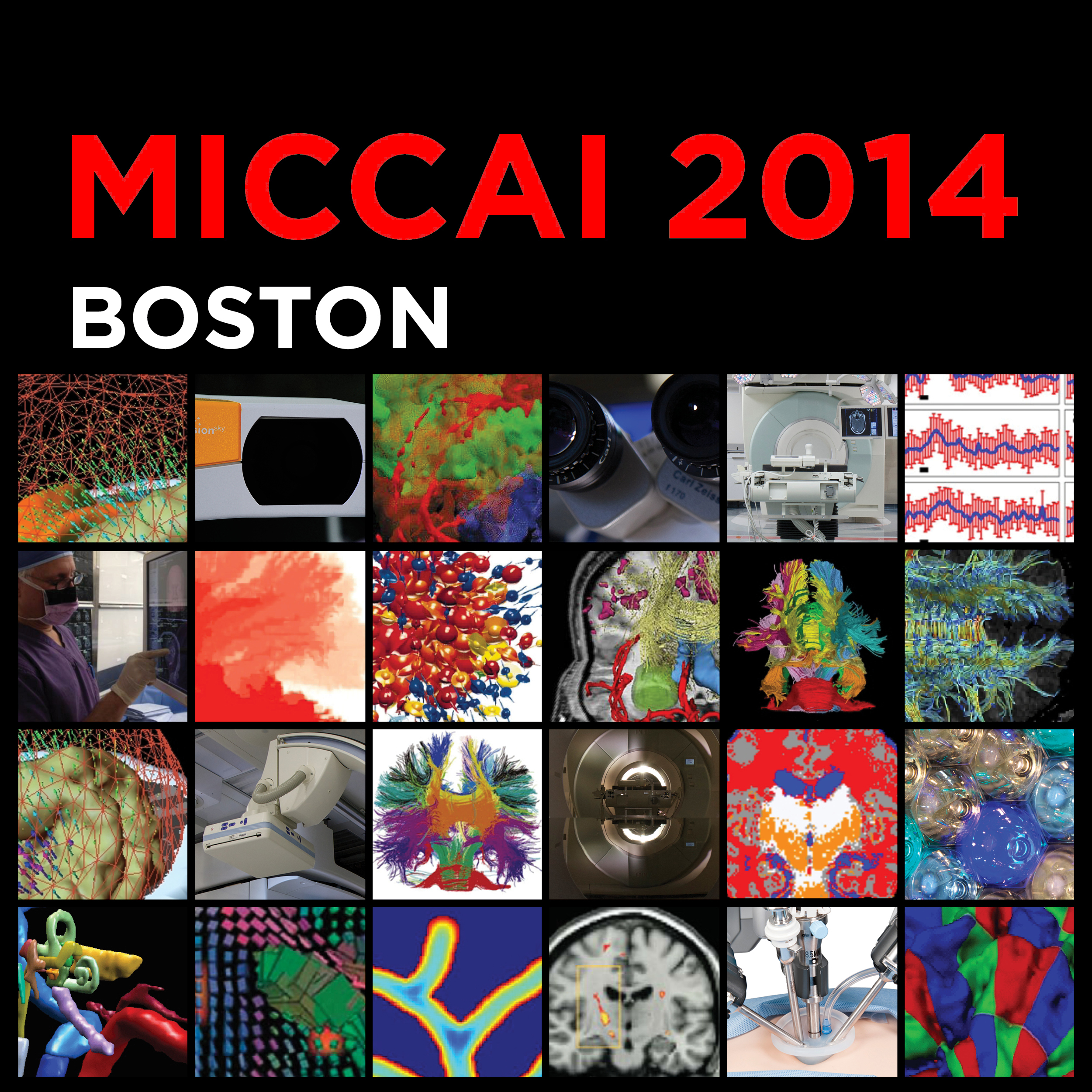
CDMRI'14
MICCAI 2014 Workshop on
Computational Diffusion MRI
|

|
|
|
|
|
Call for Papers
**The deadline for submission has been extended to 8th June 2014**
Over the last decade interest in diffusion MRI has exploded. The technique provides a unique insight into the microstructure of living tissue and enables in-vivo connectivity mapping of the brain. Microstructural changes are often the earliest signs of disease or tissue regeneration, as well as being manifestation of physiological processes in normal tissue functioning. Tractography and connectivity mapping give fundamental new insights in neuroscience and neuroanatomy. The variety of clinical applications is expanding rapidly and includes detection of lesions and damaged tissue, prognosis of functional impairment and neurosurgical planning.
Computational techniques are key to the continued success and development of diffusion MRI and to its widespread transfer into the clinic. New processing methods are essential for addressing issues at each stage of the diffusion MRI pipeline: acquisition, reconstruction, modeling and model fitting, image processing, fiber tracking, connectivity mapping, visualization, group studies and inference. The workshop will give a snapshot of the current state of the art.
We are pleased to announce that the proceedings of CDMRI'14 will be published by Springer as a volume in the Mathematics and Visualization series.
|
Important Dates
- June 8th, 2014 (23:59 PST):
- Paper Submission
- July 3rd, 2014:
- Notification of Acceptance
- July 24th, 2014:
- Camera-Ready Papers
- August 1st, 2014:
- Early registration deadline
- September 18th, 2014:
- Workshop
Challenge
- This year we are also holding a "Sparse Reconstruction Challenge for dMRI" (SPARC dMRI) to allow the community to test their algorithms on physical phantom data. Visit the challenge website.
|
Workshop Topics
Full-length papers are invited in (but not limited to) the following areas:
- Acquisition protocol design
- High angular resolution and general q-space sampling techniques
- Biophysical models
- Numerical simulation of diffusion process
- Tissue microstructure imaging
- Tractography and connectivity mapping
- Network analysis
- Registration, segmentation, and classification
- Multimodality modeling of diffusion and functional or genetic data
- Visualization
- Validation
- Post-processing
- Group studies and statistical analysis
- Clinical applications
Papers accepted at the main conference may not be double-submitted to CDMRI'14.
|
Invited Speakers
- Carl-Fredrik Westin
- Harvard University, USA
Program
- Paper Presentations:
- 8-12 oral presentations with ample time for questions; a few
posters may be accepted.
|
|